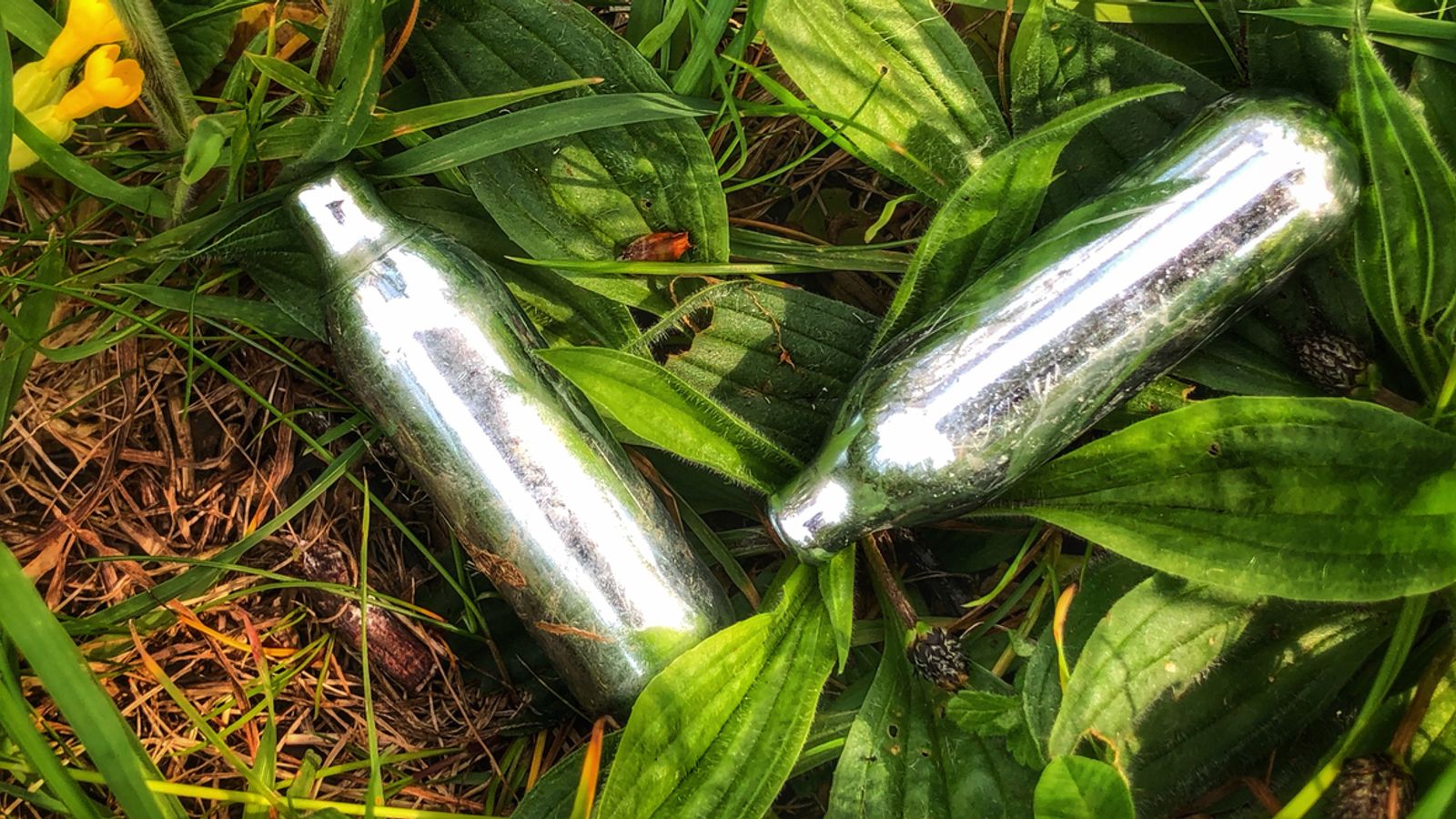Doctors have warned of an “epidemic” of young people being admitted to hospital after inhaling nitrous oxide – some of whom are ending up paralysed.
Laughing gas – sometimes called “hippy crack” or “whippets” – is the second-most used drug among 16 to 24-year-olds in the UK and can produce feelings of euphoria, relaxation and calmness as well as fits of giggles and laughter.
However, experts have raised concerns that prolonged use can cause serious health issues, including permanent neurological damage.
Doctor David Nicholl, a consultant neurologist at Queen Elizabeth Hospital in Birmingham, said he and his colleagues are seeing large numbers of young people coming into hospital after taking nitrous oxide.
In a viral TikTok video, he warned that many people taking the gas recreationally may not be aware of the risks.
“At the moment we – myself and my colleagues – are seeing an epidemic of young people being admitted to hospital off their legs because they have been taking whippets,” he says in the clip.
Some patients are left with “life-changing neurological injuries”, he says, adding: “Is that really a laughing matter? I don’t think it is.”
Drugs worth £1bn found hidden in marble tiles in Australia’s biggest meth bust
Heroin: Dying in silence
Drug deaths rise again across England and Wales – as government accused of not caring by one of its own drugs advisers
“It’s an absolute epidemic and some of these people using this will have no idea that actually they could end up not being able to walk for the rest of their life just for a bit of a laugh.”
His warning was echoed by Dr Nikos Evangelou, an academic neurologist at the University of Nottingham.
He took to Twitter to raise the alarm over what he referred to as an “epidemic of nitrous oxide-induced spinal cord and nerve damage”.
“Terrifying to see paralysed young people from laughing gas canisters,” he added.
Read more: Hippy crack is ‘no laughing matter’ as trade body calls for sales ban
Despite some calls to ban the drug, possession of nitrous oxide remains legal in the UK.
Selling it for its psychoactive effects was made illegal after the Psychoactive Substances Act in 2016, however.








